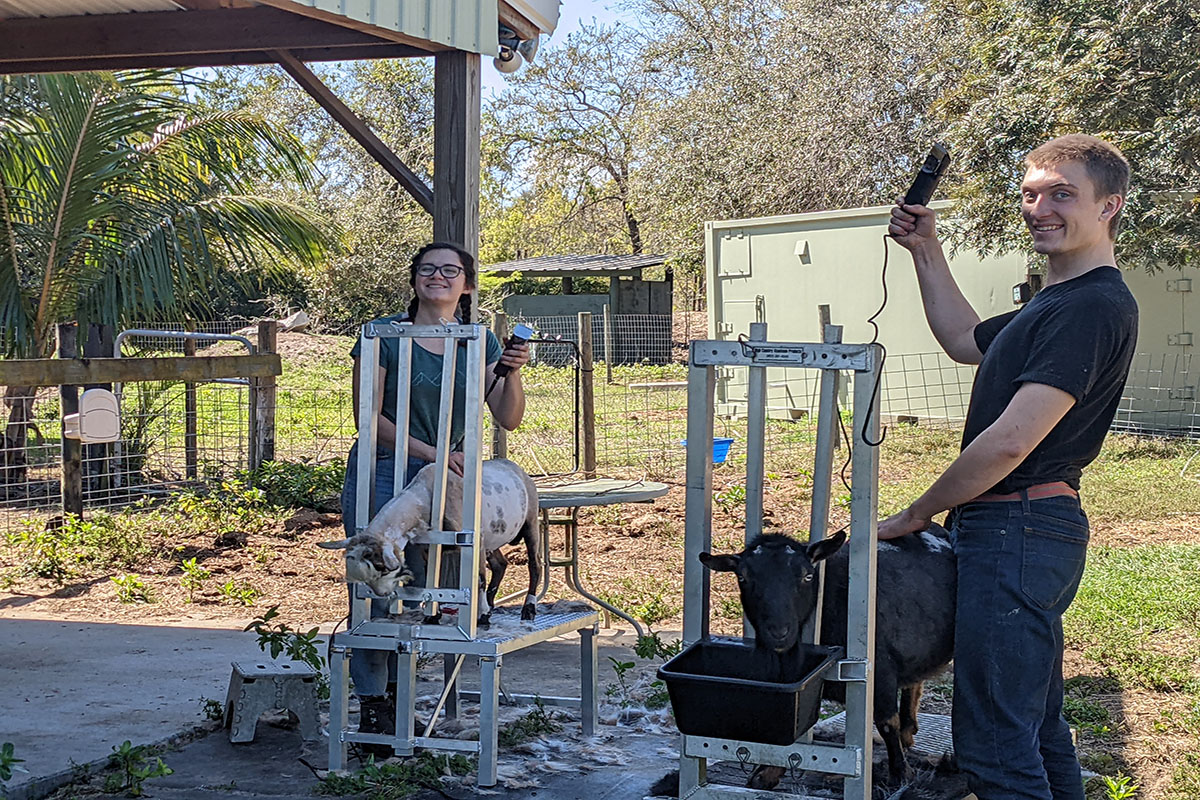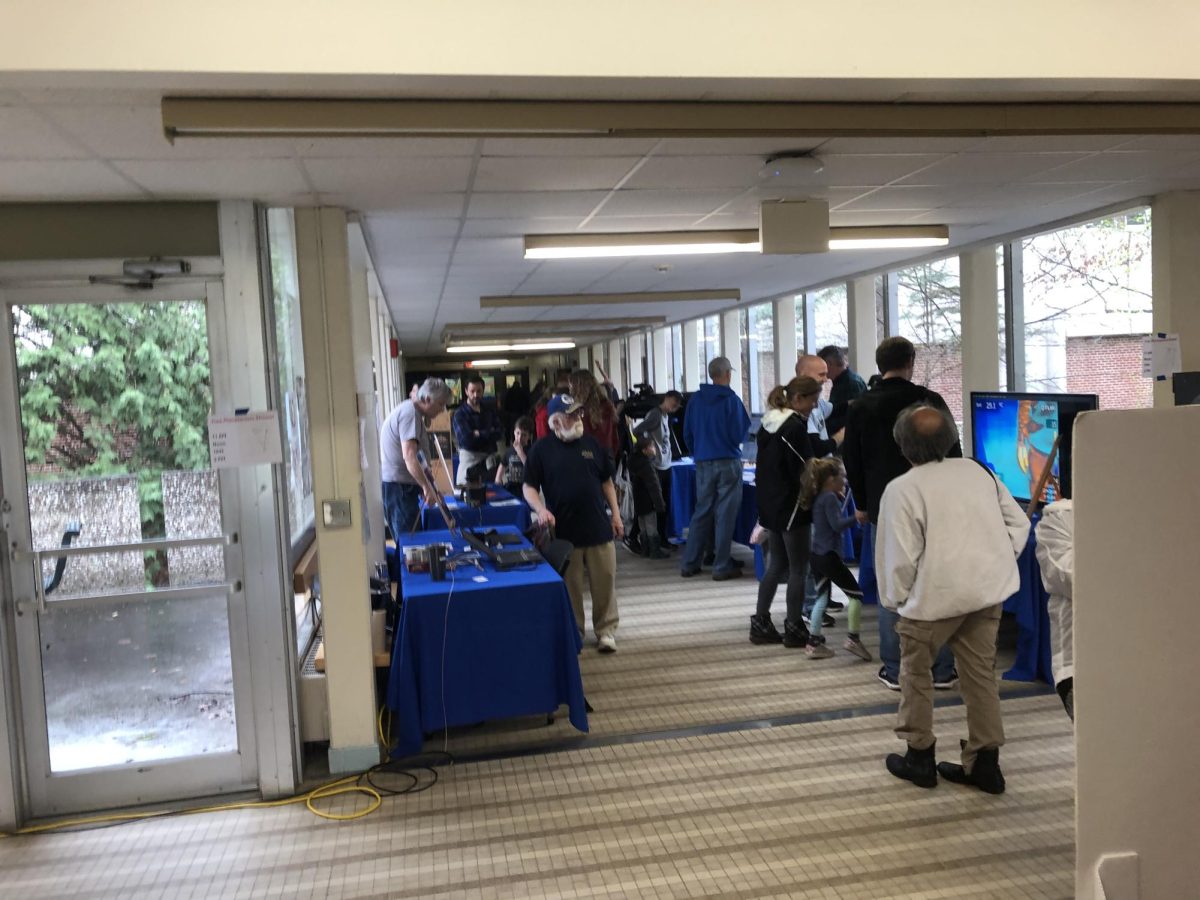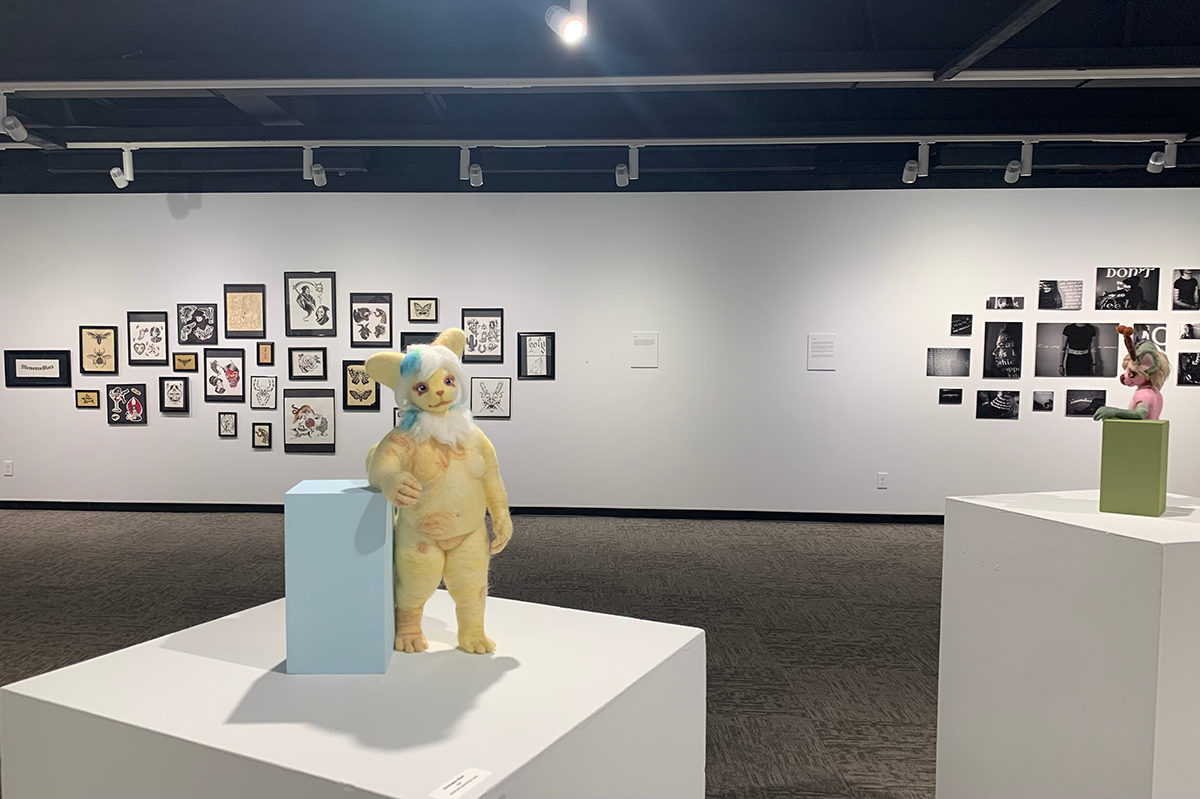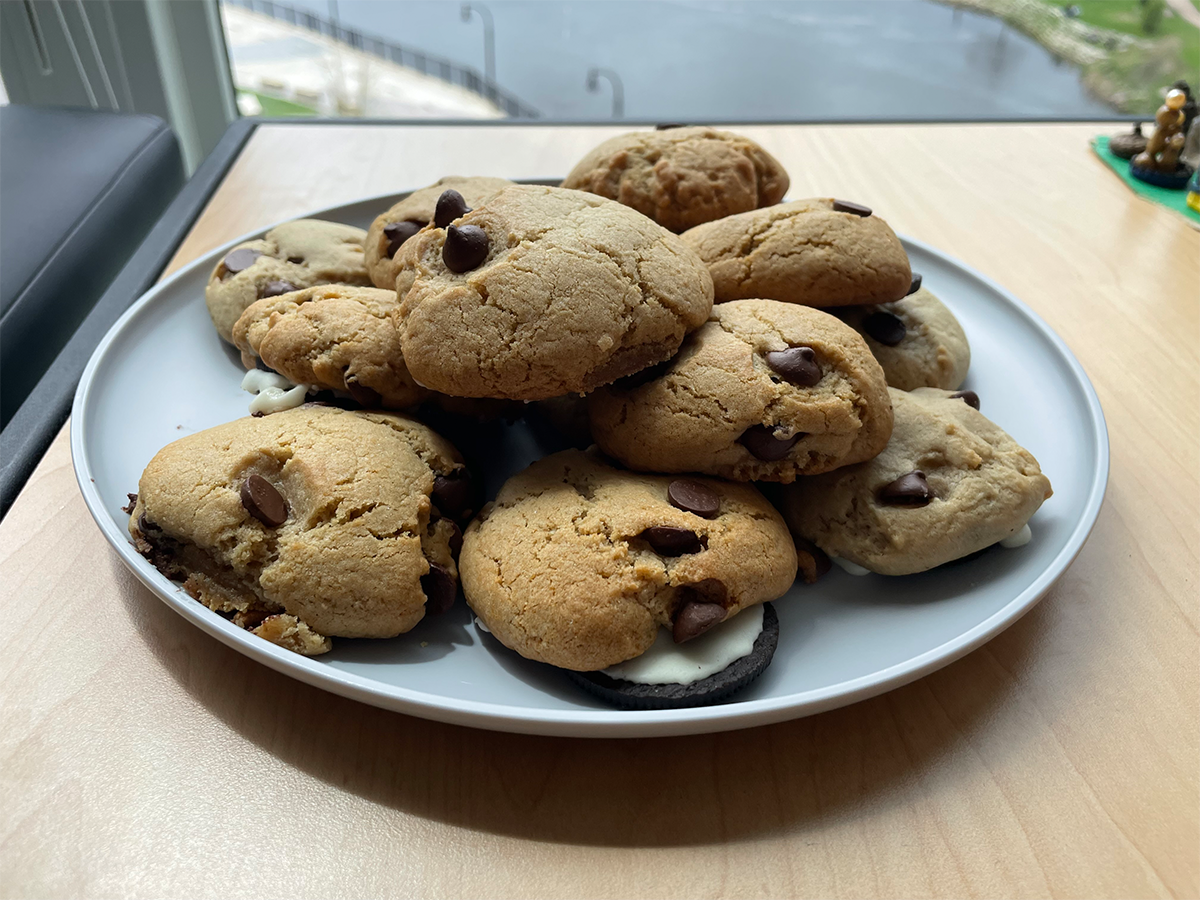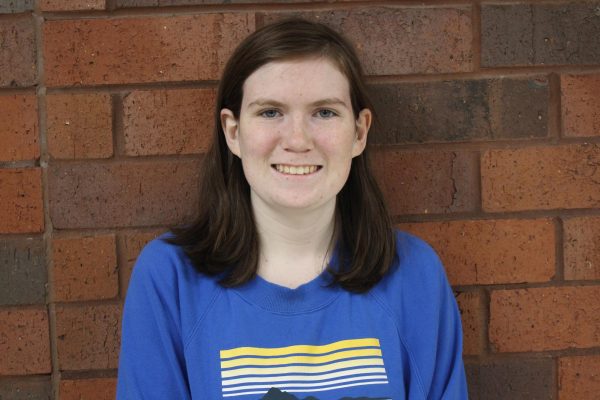As part of the Thursdays at the U speaker series, UW-Eau Claire — Barron County hosted environmental educator Briana Bateman for her presentation “Shearing Delight.”
During this presentation, Bateman discussed her business Riversong Shearing, which she started in 2021 with her partner Luke Yourzak.
Yourzak previously hosted a Thursdays at the U presentation titled “Down the Mississippi in a Leaky Canoe,” where they discussed their canoe trip down the Mississippi River.
Bateman said that after she graduated from UW-Madison in 2021 with a degree in community and environmental sociology and environmental science, her first job was working in a vegetable farm.
She said it didn’t feel right for her and after a trip to Florida with her partner, they both decided to start a shearing business because Yourzak had some prior knowledge of shearing.
Bateman said after they bought equipment and researched shearing by watching videos on YouTube and TikTok, such as videos from Right Choice Shearing, they gathered together enough clients for two weeks down in Florida.
She said their first client had them shear 12 sheep which took 9-10 hours. Bateman said it now only takes them five minutes to shear a sheep. They now have 250 clients across 13 states, but most commonly do work in Florida.
They tour from January to May along with a few employees. When they first started, Bateman said she was worried she and her partner would get sued, and after their first season, they barely made a profit.
They have worked with animals such as alpacas, sheep, llamas, miniature zebus, donkeys, goats, pigs and horses with Cushing’s disease. Yourzak handles the shearing and Bateman handles talking to clients and hoofwork.
In addition to shearing and doing hoofwork for animals, they have been asked to do odd jobs for many clients such as putting in lightbulbs, fixing stoves and installing doors.
Bateman said she and her partner have been able to find and connect with clients through word of mouth and Facebook. Some of these clients include billionaires, celebrities and even doomsday preppers.
“A shocking amount of sheep owners are doomsday preppers,” Bateman said.
She said one particular client was a 10-year-old doomsday prepper and when Bateman talked to him he said he has sheep “so that I will have clothing in the end times”.
Bateman explained that many clients they work with are very hospitable and have let them stay or camp on their property.
She said she and her partner have even been invited to dinner by clients or given gifts like shoes.
Bateman says shearing can be dangerous and result in injuries, especially when it comes to working with llamas.
Bateman said she and Yourzak had a mentor who taught them how to shear relatively safely, but injuries still occur, and since then, their mentor has had their eye socket kicked out by a llama.
Bateman and Yourzak have also received injuries on the job, such as Bateman dislocating her finger and puncturing her hand, along with Yourzak receiving a black eye from a llama.
Bateman said she will have to shorten her next season and only participate from January to March due to discovering she has Osgood-Schlatter Disease. Yourzak will continue the rest of the season without her.
Bateman also has a full-time job working at the Riveredge Nature Center as the community outreach coordinator.
Bateman said that if anyone wants to get started as a shearer, they should get in touch with others in the community or pursue classes offered on the subject.
“The main advice I have is if you really want to do it, do it,” Bateman said.
Liz Curtin can be reached at [email protected].

